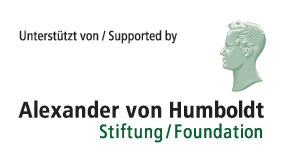Women and Translation in Early Modern Germany, c.1600-1720 (2017-20)
This project, funded by the Alexander von Humboldt Foundation, will shed new light on the cross-cultural exchanges which shaped early modern Europe.
The role of translation in cultural history is a new and vibrant area of research which is transforming our understanding of Europe’s past. Translation appears to have had a particularly far-reaching impact in the German context, not least in the seventeenth century, when literary men in the war-torn, politically fragmented German states saw translation as crucial to their efforts to regenerate German culture and promote the concept of German nationhood.
This project will provide the first in-depth investigation of the neglected tradition of women translators in the period c. 1600-1720. For despite a general assumption that women played a rather marginal role in cultural life, there is evidence that at least forty women engaged in translation in this period and that they produced translations in a surprisingly wide range of fields.
This clearly warrants closer attention, given that there is a growing body of research on women translators in other European countries which suggests that translation had a special significance for the fair sex in the past: critics say that as translation was perceived to be more humble than other intellectual pursuits it offered women a ‘safe’ way to participate in the cultural sphere and that women exploited this opportunity in sometimes surprising ways. The project will examine the work of women translators in Germany within the context of literary, intellectual and cultural history and will seek to assess the significance of gender for an understanding of their activities. The project looks set to open up new perspectives on the first generations of literary women in Germany, on gender and translation, and on the intellectual phenomena which shaped early modern Europe.
